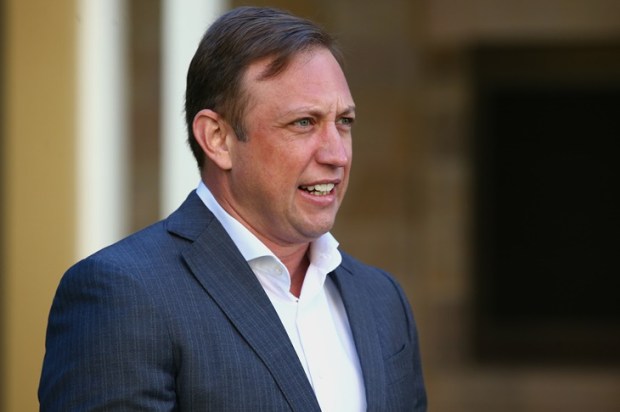According to WA Labor’s Plan for Jobs, ‘a McGowan Labor Government will free business from the burden of poor regulations’. Yet if elected WA Labor will also ban new uranium mines and refuse to complete approvals processes for mines that are already underway. So much for freeing business from red tape.
The prospect of a Labor victory next March is already wreaking havoc on the uranium industry. According to recently released figures by the Australian Bureau of Statistics uranium exploration has come to a virtual standstill, with just $2.3 million invested in the sector in the June Quarter 2016. This is 92 per cent below the December 2010 peak and the lowest level since level since the original ban on uranium was lifted by the Barnett Government in 2008.
Part of the decline is structural; the resources sector has declined on the back of lower commodity prices. And people have grown more cautious about nuclear fuel following Fukushima. But Labor’s policy is clearly causing damage.
Over just the past year for example, quarterly expenditure on uranium exploration has declined by some 66 per cent. While expenditure in the non-uranium resource sector has actually increased by 14 per cent. Businesses are hedging their bets on a Labor win in March and are retreating from the market.
But what is so bizarre about the proposed ban is that it will prevent Labor from delivering on a number of its own policy objectives.
Firstly, Labor’s Plan for Jobs says more skilled jobs are needed in regions. But this cannot be achieved without a buoyant resource sector. According to recent research commissioned by the Minerals Council of Australia, up to 22,600 jobs could be created in the uranium sector by 2040 across the country. Western Australia will share these jobs with South Australia and the Northern Territory, with the lion’s share going to rural and regional areas. Opposing uranium means opposing these jobs.
Secondly, Labor claims to want to improve our climate and natural environment. But banning uranium means banning a low-emissions fuel with a relatively small environmental footprint. Even prominent environmentalists, such as the former Executive Director of Greenpeace UK, Stephen Tindale, have recognised the importance of nuclear fuel in facilitating a cleaner environment.
Thirdly, the proposed ban undermines Labor’s Brand WA which seeks to ‘promote and support WA businesses across all sectors’. Labor’s ban would send a clear message that Western Australia is closed to investment – hardly a positive brand.
Fourthly, Labor has criticized the Barnett government for ‘poor management of mining royalties’. But at least the Barnett government had an industry policy that would allow royalties to be received in the first instance. Under Labor royalties from uranium will come to the grand total of $0.
Lastly, it makes Labor’s claim that they value ‘the economic freedom to pursue our own employment and enterprise’ simply laughable. You could not do more to undermine free enterprise than ban an entire industry.
But what is happening in Western Australia’s uranium industry is occurring across the country as prohibitions and red tape stunt primary industries.
For example, the Victorian government recently announced it will extend the current moratoria on coal seam gas development to a permanent ban.
The Productivity Commission has found that just obtaining a mining exploration licence can take more than two years.
The Roy Hill iron ore mine in the Pilbara required more than 4,000 licences, permits and approvals from Commonwealth, state and local governments in its pre-construction phase alone.
And it has taken more than six years and a billion dollars for Adani to get approval for its central Queensland coal mine. And having just overcome two frivolous legal challenges in a month, Adani faces three more.
The anti-development ethos, epitomised by WA Labor’s proposed uranium ban, and illustrated by reams of red tape across the country, is one of the biggest issues holding back economic development and growth.
Red tape is increasingly being used to shut down industry and development under the pretence of responsible government and environmental concern.
The Western Australian Labor Party should reverse its opposition to uranium. This would generate regional jobs, a cleaner environment and expand freedom, all of which WA Labor claims to support.
Daniel Wild is a research fellow with the Institute of Public Affairs
Got something to add? Join the discussion and comment below.
Get 10 issues for just $10
Subscribe to The Spectator Australia today for the next 10 magazine issues, plus full online access, for just $10.

























Comments
Don't miss out
Join the conversation with other Spectator Australia readers. Subscribe to leave a comment.
SUBSCRIBEAlready a subscriber? Log in